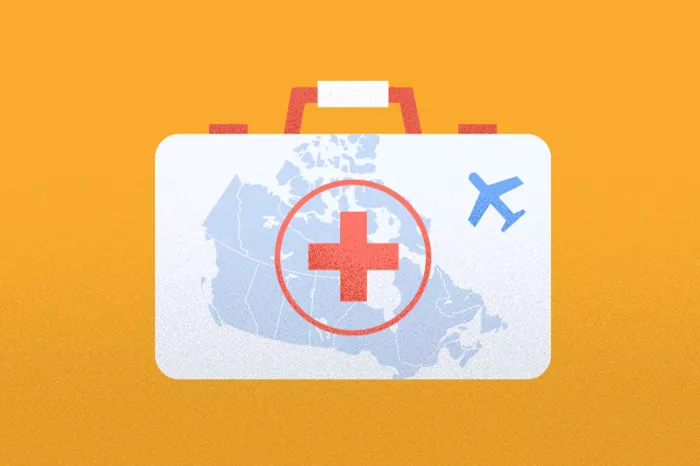Traveling abroad can be an exciting adventure, but it also raises questions about your health coverage while you’re away. The main concern for many travelers is whether their health insurance will provide coverage in another country. This article explores the ins and outs of international health insurance coverage, helping you understand what to expect and how to ensure you’re protected during your travels.
Understanding Health Insurance Coverage Abroad
When you ask, “Will my health insurance cover me in another country?” the answer depends on several factors, including your current health insurance plan, the country you’re visiting, and the nature of your medical needs.
Types of Health Insurance Coverage
1. Domestic Health Insurance
Most domestic health insurance plans, especially those from employer-provided plans or government programs like Medicare or Medicaid, offer limited or no coverage outside the country. These plans are generally designed to cover medical expenses within the home country and may not extend to international travel.
2. Travel Health Insurance
Travel health insurance is specifically designed for travelers and provides coverage for medical emergencies while abroad. This type of insurance can cover a range of expenses, including hospital stays, doctor visits, and emergency evacuation. It’s often recommended for those who will be traveling for extended periods or to countries where healthcare costs can be high.
3. International Health Insurance
International health insurance, also known as expatriate health insurance, is intended for individuals who live or work outside their home country for an extended period. This insurance offers comprehensive coverage similar to what you would receive with a domestic plan but is designed to be valid internationally. It covers routine medical care, emergency services, and sometimes even repatriation services.
4. Supplemental Health Insurance
Supplemental health insurance can be purchased in addition to your existing plan to cover gaps in coverage while traveling. This can be a good option if your current plan offers limited international coverage and you need additional protection.
How to Determine Your Coverage
1. Check Your Current Policy
Before you travel, review your current health insurance policy. Look for any provisions related to international travel and see if your plan includes coverage for medical expenses abroad. Contact your insurance provider to get specific details about what is covered and any limitations that may apply.
2. Review Coverage Limits
Even if your plan does provide some international coverage, there may be limits on the amount covered. Ensure you understand these limits to avoid unexpected out-of-pocket expenses in case of a medical emergency.
3. Understand Emergency Services
Many health insurance plans, including travel and international insurance, focus on emergency services. Make sure you know what qualifies as an emergency and how to access these services while abroad.
4. Look into Medical Evacuation Coverage
Medical evacuation coverage is crucial if you are traveling to a country with limited medical facilities. This coverage helps with transportation to the nearest adequate medical facility, which can be costly. Check if your plan includes this service or if you need to purchase it separately.
5. Consider a Travel Health Insurance Policy
If your current insurance does not offer sufficient coverage, consider purchasing a travel health insurance policy. These policies are often more affordable and provide comprehensive coverage for various travel-related health issues.
Choosing the Right Plan
1. Assess Your Travel Needs
Consider the length of your trip, the destination, and any pre-existing medical conditions. If you are traveling to a country with high healthcare costs or spending an extended period abroad, you may need a more comprehensive plan.
2. Compare Plans
When choosing a travel or international health insurance policy, compare different plans and their coverage options. Look at factors such as coverage limits, exclusions, and the process for filing claims.
3. Read the Fine Print
Ensure you understand all terms and conditions associated with your health insurance policy. Pay attention to any exclusions or limitations, especially those related to pre-existing conditions or specific types of care.
4. Purchase Coverage Early
It’s best to purchase travel health insurance well in advance of your trip. This ensures you have adequate coverage from the moment you leave your home country and can help avoid any last-minute issues.
Understanding Coverage Exclusions
1. Pre-existing Conditions
Many health insurance plans exclude coverage for pre-existing conditions. If you have a chronic illness or ongoing medical issue, check if your policy covers treatment related to these conditions while abroad.
2. Routine Care
Routine medical care, such as check-ups or preventative treatments, may not be covered under travel health insurance. These policies are typically designed for unexpected medical emergencies rather than routine visits.
3. Non-Emergency Services
Non-emergency services or elective procedures may not be covered by your health insurance while traveling. If you need to see a specialist or undergo elective surgery, verify whether your plan includes these services.
See Also:What Is First Health Insurance
Filing a Claim While Abroad
1. Obtain Documentation
If you need to file a claim while abroad, make sure to keep all documentation related to your medical treatment. This includes bills, receipts, and any correspondence with healthcare providers.
2. Contact Your Insurance Provider
Notify your insurance provider as soon as possible after receiving medical treatment. They will guide you through the claims process and provide instructions on how to submit your documentation.
3. Follow the Claims Process
Each insurance provider has its own process for filing claims. Ensure you follow the procedure carefully to avoid delays in reimbursement.
Conclusion
In summary, whether your health insurance will cover you in another country depends on your specific plan and coverage details. Domestic health insurance typically offers limited international coverage, while travel and international health insurance provide more comprehensive options for medical emergencies abroad. Assess your needs, review your current policy, and consider additional coverage if necessary. By understanding your options and preparing in advance, you can ensure you’re protected and enjoy your travels with peace of mind.
FAQs
1. What does my current health insurance cover when I travel internationally?
Your current health insurance coverage for international travel depends on the specifics of your plan. Many domestic health insurance plans offer limited or no coverage outside your home country. This often means that while you might be covered for emergencies or urgent care, routine medical visits or planned treatments may not be covered. Additionally, the level of coverage can vary widely depending on your insurance provider and the plan you have. It is crucial to review your policy details or contact your insurance provider to understand the extent of your coverage when traveling abroad. If your plan does not provide adequate international coverage, you might need to consider additional options such as travel health insurance or international health insurance.
2. Do I need to purchase travel health insurance if my current plan covers international travel?
Even if your current health insurance plan provides some level of international coverage, purchasing travel health insurance can still be beneficial. Travel health insurance is specifically designed to address gaps in coverage that might exist in your regular health insurance plan, such as emergency evacuation, coverage for high-risk activities, or medical repatriation. Additionally, travel health insurance often offers more comprehensive protection for medical emergencies abroad and can cover costs that your primary health insurance might not, such as certain types of emergency medical treatment or transportation to specialized facilities. Evaluating your existing coverage and comparing it with the benefits of a travel health insurance policy can help ensure you have the protection you need while traveling.
3. How can I find out if my health insurance includes emergency evacuation coverage?
To determine if your health insurance plan includes emergency evacuation coverage, you should start by reviewing your policy documents or contacting your insurance provider directly. Emergency evacuation coverage helps cover the costs of transporting you to a medical facility that can provide the care you need, which is particularly important if you are traveling to a location with limited healthcare facilities. Ask your insurance provider about the specific terms of this coverage, including any limits on the amount covered, the process for arranging evacuation, and whether there are any conditions or exclusions. It is also helpful to check if the policy covers repatriation of remains, as this can be an essential consideration for comprehensive travel protection.
4. What should I do if I need medical care while abroad and my insurance doesn’t cover it?
If you require medical care while abroad and your insurance does not cover the expenses, you will need to explore alternative options to manage the costs. First, seek treatment from reputable healthcare providers and obtain detailed documentation of your medical care, including invoices and receipts. You may be able to pay for the services out-of-pocket and then file a claim with your insurance provider for any covered expenses, or you may need to negotiate payment plans with the healthcare provider. Additionally, consider purchasing travel health insurance as a supplementary measure to cover unforeseen medical expenses. In some cases, you might be able to use a credit card with travel insurance benefits or seek assistance from local consulates or embassies, which can sometimes provide resources or referrals for medical care.
5. What factors should I consider when choosing travel health insurance?
When choosing travel health insurance, consider several key factors to ensure you select a plan that meets your needs. These factors include:
Coverage Limits: Review the maximum amount the policy will pay for different types of medical expenses, including emergency medical treatment, hospitalization, and evacuation. Ensure the coverage limits are sufficient for the destinations and activities planned.
Pre-existing Conditions: Check whether the policy covers pre-existing medical conditions or if there are any exclusions. Some travel health insurance policies offer limited or no coverage for pre-existing conditions.
Destination: Consider the healthcare quality and costs in your destination. Countries with high healthcare expenses or limited medical facilities may require more comprehensive insurance coverage.
Duration of Travel: Ensure the insurance policy covers the entire duration of your trip. Some policies offer short-term coverage, while others are available for extended periods or long-term stays.
Emergency Assistance Services: Look for policies that provide 24/7 emergency assistance, including support for arranging medical care and evacuation if needed.
Policy Exclusions and Deductibles: Be aware of any exclusions, such as coverage for certain activities or treatments, and understan






















